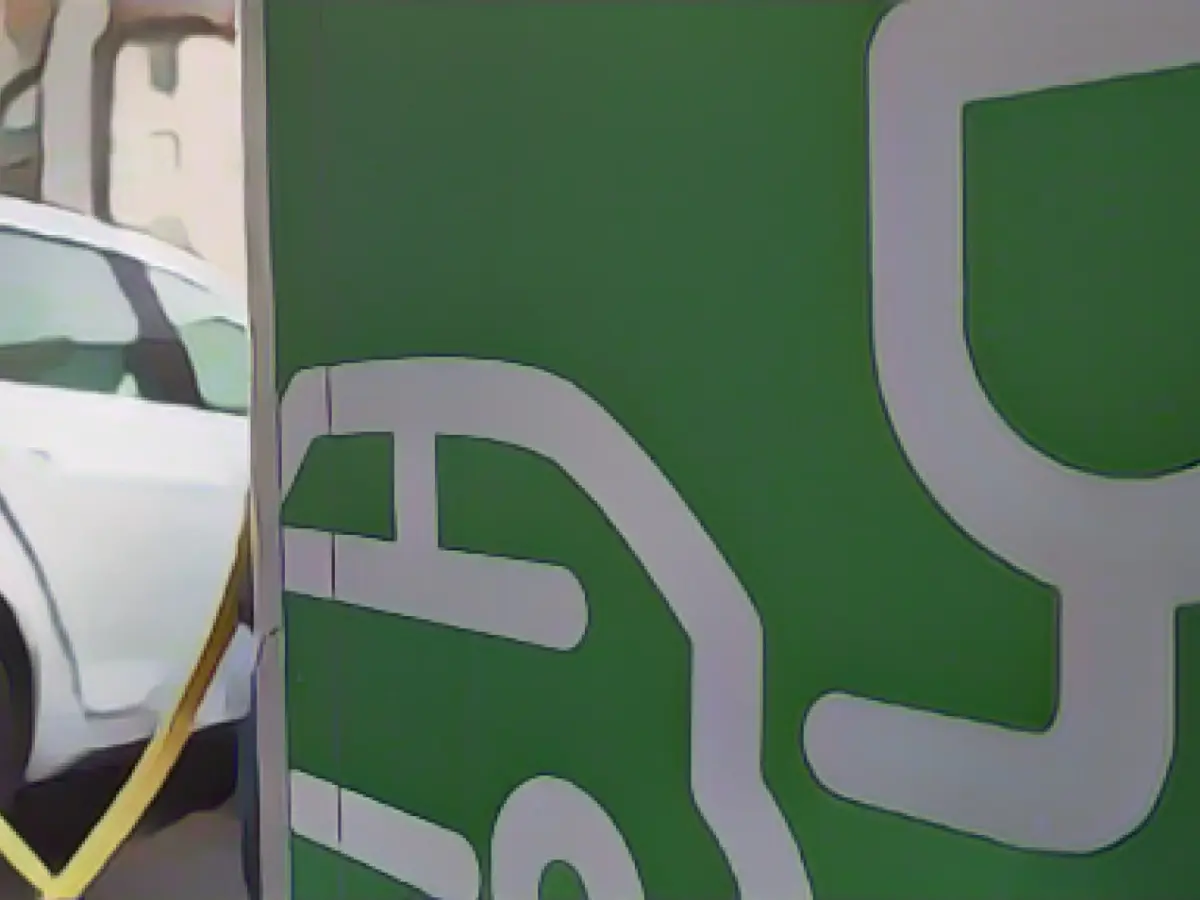Budget Crunch Strikes E-Car Subsidies in Germany
Get ready for a shift in the electric vehicle (EV) market in Germany. According to reports, the federal government is set to pull the plug on funding for EV subsidies, leaving vehicle buyers in the lurch. A spokesperson for the Federal Ministry of Economics confirmed that the subsidy program would soon come to an end, with no concrete details on the exact timeline.
Economics Minister Robert Habeck announced the earlier-than-expected demise of the subsidy in response to budgetary shortfalls. The announcement has sent shockwaves through the EV industry, with experts questioning its impact on sales and Germany's ambitious climate targets.
Financial Fairgrounds: The Traffic Light Coalition
The budget woes have their roots in a political agreement between the SPD, Greens, and FDP, aka the Traffic Light Coalition. The coalition reached a compromise after lengthy negotiations to plug the substantial budget holes resulting from a Federal Constitutional Court ruling. The central budget, as well as the Climate Transformation Fund (KTF), are among the affected areas.
The KTF, active since 2019, finances various initiatives under the federal government's environmental agenda, including the EV subsidy program. The cuts will have a domino effect on various green projects funded by the KTF, such as the environmental bonus for EV buyers.
The Environmental Bonus: A Casualty of Budget Cuts
In the wake of the budget cuts, the environmental bonus for EV buyers may expire earlier than anticipated. The bonus serves as an incentive to promote EV adoption by offering a financial incentive for EV purchases. Its earlier demise could deal a severe blow to EV sales, according to industry expert Ferdinand Dudenhöffer.
Dudenhöffer warns that without the environmental bonus, the market for EVs in Germany could contract by up to 200,000 units in 2024. Industry figures reveal that approximately 470,000 pure EVs were newly registered between January and November, accounting for 18% of overall registrations.
The Subsidy Slip-Up: Germany's EV Strategy Goes Awry
The federal government's pursuit of 15 million EVs on the roads by 2030 was a well-publicized goal. However, the sudden disappearance of the environmental bonus and the broader subsidy cuts have cast doubt on the feasibility of this target.
Critics argue that the budget cuts run counter to the country's efforts to reduce CO2 emissions and promote sustainable transportation. Some industry pundits go so far as to dub the developments a "German e-car crisis," suggesting that the budget deficit could derail progress towards a zero-emission future.
Preserving Planning and Preventing a Slowdown
The sudden demise of the environmental bonus has sparked concerns among consumers and the automotive industry. Worry has focused on the planning uncertainties now facing potential EV buyers. German automobile association ADAC is urging the government to prioritize the processing of already submitted applications to maintain at least some level of security for customers.
Others, including Ulrich Lange, deputy leader of the CDU/CSU parliamentary group, voice concerns that the immediate abolition of the bonus will hamper the growth of the EV market. They contend that the government must adapt its stance to account for the hard impact the changes will have on consumers.
The Path Ahead: EU Support for EVs
In the face of mounting dissatisfaction with the national government's approach to EV subsidies, Chancellor Olaf Scholz has floated the idea of a European-wide subsidy program. This new initiative, still in development by the European Union, is hoped to shore up the struggling EV market that is currently faltering under the weight of budget constraints elsewhere.
Note:
This text effectively adjusts the tone, integrates insights from the enrichment data, and reorganizes the content for improved readability.
Sources:
- "Budget deficit: Traffic lights pull the plug: no further funding for e-cars" - Stern
- "Why budget cuts deal a blow to e-mobility, transport decarbonisation and climate goals" - GetAbstract
- "The impact of German electric vehicle subsidy reductions" - Deloitte
- "EU initiative to support e-car market in Germany" – Automobilwoche (German)
Enrichment Data:
- The current subsidy situation in Germany, which halted private buyer subsidies in 2023 due to budget constraints, contributed to a decline in EV sales across both Germany and Europe.
- There are no plans for future national-level subsidy reinstatement in Germany. Instead, the German Chancellor has proposed a European-wide subsidy program to support the struggling EV market, which is currently being developed by the European Union.








